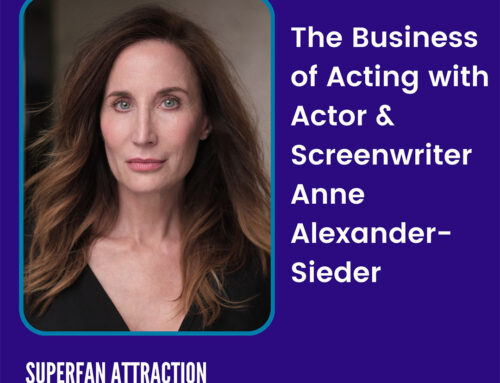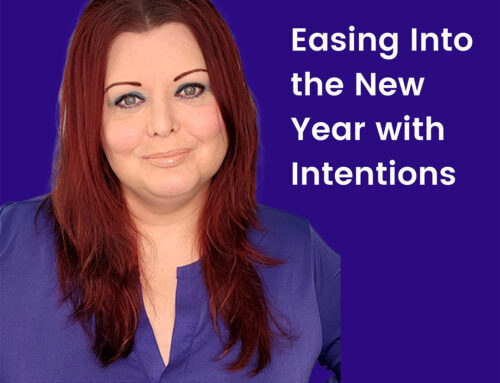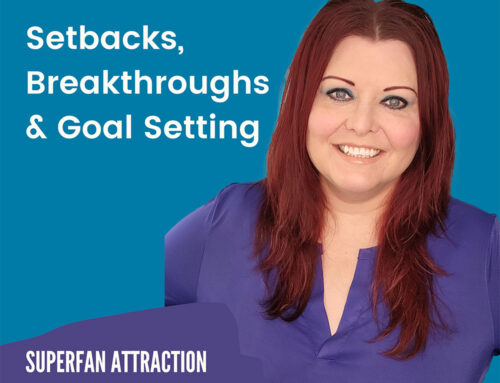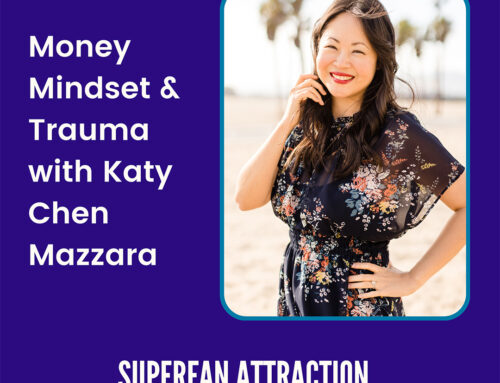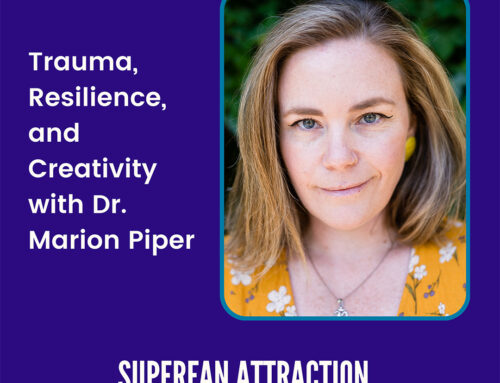Dave Randall & The Political Power of Music
Sing! Dance! Act! Thrive! Podcast Episode 024
Dave Randall is a guitarist, producer, and composer. He has contributed to multi-million selling albums by Grammy Award-winning artist Dido and has toured the world a number of times performing with UK dance act Faithless. As well as making music Dave has published numerous articles and given talks on the history of music and its role in society. His debut book Sound System – The Political Power of Music was published on Pluto Press in 2017.
SHOW NOTES:
Hello and welcome to episode 24 of Sing! Dance! Act! Thrive! My guest today is Dave Randall who is a guitarist, producer, and composer. He has contributed to multi-million selling albums by Grammy Award-winning artist Dido and has toured the world a number of times performing with UK dance act Faithless. His own critically acclaimed albums released under the name Slovo feature international collaborations with artists including Iceland’s Emiliana Torrini, West Africa’s Maezah and US jazz legend Max Roach.
Dave was invited to appear alongside Baaba Maal, Michael Stipe, the Mahotella Queens, Neneh Cherry, and others, in the studio and on stage, as part of the 1 Giant Leap project. Recently he has toured with Sinead O’Connor, teamed up with Big Dada artist Mike Ladd, clarinet player Carol Robinson, and drummer Dirk Rothbrust to create the Paris based improvising quartet ‘Sleeping In Vilna’, and contributed guitars to the stunning debut album from Nessi Gomes. He’s currently performing live with Roland Gift from the Fine Young Cannibals.
As well as making music Dave has published numerous articles and given talks on the history of music and its role in society. His debut book Sound System – The Political Power of Music was published on Pluto Press in 2017.
He was in Toronto for Canadian Music Week conference this past spring and I had a chance to sit down with him for a fascinating chat about music and politics. I hope you enjoy it.
TRANSCRIPTION:
Diane Foy 0:00
Welcome to the show. Maybe introduce yourself and a little bit about your background and your career highlights.
Dave Randall 0:06
Okay. My name is Dave Randall, I’m a musician by trade. I began my career, touring with different bands playing guitar. And now I produce and compose music. But most recently, I’ve been touring a book I wrote a book a couple of years ago. And that’s what brings me to this festival. The book is about music and politics. It’s called Sound System, The Political Power of Music. And so I was here today speaking. And then joining a panel in order to discuss precisely that subject, the ways in which music and politics converge. And how music can be part of the projects of trying to change the world.
Diane Foy 0:50
Right. And so when you were young, what, what drew you to play guitar like pick up your first guitar get into music? How did that happen?
Dave Randall 0:59
I guess a friend’s older brother played guitar and, you know, I saw him playing and it seemed like a romantic thing to do. And I also think I said to my mom and dad that I wanted to learn the drums and they said no way too loud, too expensive, right? How about guitar? So um, you know, it was partly romance partly pragmatism, like most things in life, I suppose. But yeah, you know, it’s, it’s, it’s something that started to make sense in my life when I was in my early teens and, and, you know, I became a professional guitarist when I was 23. So you ended up changing my life?
Diane Foy 1:38
In what way?
Dave Randall 1:39
It became my job, you know, as opposed to having to do some sort of other job so so that was a
Diane Foy 1:46
Was there ever anything else you wanted to do?
Dave Randall 1:49
Well. I would have got on doing other things to pay the bills. I don’t want to sort of make out as if I had some special God-given calling. I think people who make that claim are often exaggerating. But I was certainly very happy to become a touring guitarist. It’s something that I have enjoyed and continue to enjoy, you know, 25 years on.
Diane Foy 2:13
Yeah, yeah. And what was your first big break? as a guitarist? Is it Faithless, the first thing you did? or?
Dave Randall 2:20
Yeah, that was the first break, I suppose. I mean, you know, when you’re living, it just seems like a series of incremental steps, you know, you sort of go from a bad unsigned band to a much better unsigned band and then to a semi-professional band, and then you know, then you’ve been asked to play on some of these records and that takes you into a professional studio. And that’s how it was for me. I was working on a record for singer-songwriter Pauline Taylor, and she was at the same time as making her own record. She was doing a few backing vocals for the first faithless record. And so when faith is had a hit initially with the song, “Salva Mea”, but then more significantly, the song “Insomnia.” So it’s a long time ago. Now I’m going back to about ’96. I suppose. The producer of that first record scooped up all the halfway competent musicians who were hanging around the studio and put us together in the band. And off we went to promote the face of this record. And that was the Yeah, I guess that was the big break.
Diane Foy 3:25
Yeah. And when you would go on tour with them, like, How long were the tours?
Dave Randall 3:32
Oh, you know, I mean, it wasn’t particularly intense when you hear about some bands who leave home and don’t come back for six months. But we would be we will be off for a couple of weeks and then back for a couple of days and off again for I suppose the standard tour cycle, you know, about 12 to 18 months. Yeah. But the nice thing about those early tours were the big singles were house music singles. Even though it’s a live band, and even though I’m a guitarist, they were known on the electronic DJ scene. And the good thing about that is that we were being flown to countries that, I don’t know, I think in countries that it takes other artists quite a long time to reach. But dance music went global fairly early on, I mean, or at least fairly global. So, in the first couple of years of touring, we, you know, we went to the US to South Africa, to Russia, to Japan, and you know, was fantastic.
Diane Foy 4:27
Yeah. And what was it that first got you more politically active?
Dave Randall 4:34
Well, in terms of global politics, I have to acknowledge the impact of a song called “Free Nelson Mandela” by the Special AKA It was written by a guy called Jerry Dammers from The Specials, and it became an important anti-apartheid anthem when I was a kid in Britain. And when I heard that song for the first time, I was probably about 14 at a festival. And I had no idea who Nelson Mandela was, but, but I knew by the end of the first course that I wanted him to become free. So I had a big impact on me and I so I went away and did some research. And I suppose that was one of the things that first politicized me. And then when you start touring, I mean, you know, you have conversations with people and see places. And if you’re halfway interested in other people’s lives and cultures, and so on, then political questions come up, and I always found them interesting.
Diane Foy 5:35
Yeah. And I was listening to your audiobook.
Dave Randall 5:39
Oh, thank you.
Diane Foy 5:41
I think I listened to most of it was almost finished. So you had some great stories in there about how your politics affected the management of Faithless Oh when they were trying to get sponsorship deals and things like that?
Dave Randall 5:57
Yeah, I mean, yeah. what you’re referring to was a period, a slightly difficult period really towards the end of my days touring with faithless. So we’re talking about the 2010 2011 tour. And I had been asked to publicly advocate Palestinian cause for the cultural boycott of Israel because, you know, that was a question that we had been forced to examine the band faithless have been forced to think long and hard about this. We are a band who have played in Israel a couple of times, but who subsequently decided that we couldn’t ignore the call from Palestinian civil society to impose the boycotts until the Israeli government you know, stops breaking international laws and stopped subjecting Palestinians to these dreadful conditions in the West Bank and Gaza and, and indeed apartheid policies in Israel itself. So we looked into the issues decided to boycott but I suppose I became because of my political contacts, I became the most prominent person in the band associated with that particular political cause. And management didn’t like it. I mean, it’s a controversial one, of course. I mean, I think mainly that they didn’t like it because the actual offer on the table to go and play in Tel Aviv was probably very, very good. You know, I think he was primarily worried about the 20% he was missing out on. But, I think more broadly than that he was worried that a position like the one that I advocated then and continue to advocate that we should indeed take a principled stand against the activities of the Israeli government. I think he felt that that might damage brand faithless, and so you’re absolutely right. So I sort of I was sat down and given a bit of a slap on the wrist. And of course he didn’t stop me from continuing to speak out, but it did. It did cause a bit of a rift in our relationship which never really healed
Diane Foy 8:06
Did ever cause a rift with the band members?
Dave Randall 8:08
No, because most of them agree with me all of them except one actually, admittedly, that one band member is a leading band member and it’s not Maxi Jazz. So fans of Faithless can figure out who I’m talking about, but Maxi supported me and agreed with me and pretty much the whole of the rest of the band did so know the band supported me, but they were also the regular band members, as opposed to the band leaders. were nervous really about supporting me too openly they were nervous about going up against management. You see, a lot of bands operate under a fairly corporate model. And the regular musicians even though we all like equals on stage. The regular musicians are nervous about upsetting management, upsetting the leaders second again.
Diane Foy 8:55
they could be replaced.
Dave Randall 8:57
Yeah, they could be replaced, exactly.
Diane Foy 8:59
So what did you do after you left Faithless?
Dave Randall 9:03
Oh, well, I, you know, continue to work. I went out with Sinead O’Connor on a sort of 18 months tour and who was it after that, you know, I continue to be a guitarist and make records and make music. But at some point towards the end of where are we now the noughties? Yeah, no, not the noughties, what am I talking about? Towards the end of those few years, I had this idea of trying to put down all my thoughts into this book that finally was published two years ago. So um, so yeah, and that’s really still where I’m at. You know, I continue to work as a guitarist, I write my own music. But I also have really enjoyed talking about the book. I enjoyed writing it. It’s been fun promoting it. And you know, I think I might have a habit of writing another. Yeah, we’ll see.
Diane Foy 9:58
That’s cool. So you think that’s kind of where your future is? Or will you always balance the two?
Dave Randall 10:04
Probably always balance the two. I mean, I know that some people would consider doing a number of things at the same time to be, you know, like, like you’re a jack of all trades and you should really focus on one thing and try to excel. But
Diane Foy 10:16
This comes up a lot on my podcast.
Dave Randall 10:18
Really?
Diane Foy 10:19
Yeah. Well as I am multi-passionate.
Dave Randall 10:22
Right, right, you know I suspect that you and I share a perspective than that actually for artists like are so creative people like us, it’s a really great thing to do different things. It’s, you know, my experiences writing the book and all the things that are brought to my life have fed and enhanced and enriched my music so I make an album at the moment and that that’s a better album because of the experiences I’ve had because of the book and vice versa you know, these things I think complement each other that’s my personal view.
Diane Foy 10:57
Yeah, yeah. I’m are always on a quest for knowledge I’ve always if I do come up with something new I want to do I’m right, hundred percent. Right. So I feel like maybe you were like that when you started to get into politics and writing the book and things like that you did a lot of research,
Dave Randall 11:14
I did a lot of research, I really enjoy doing the research but you know, I should make it clear that the thing that motivates me, most of all is not some sort of intellectual curiosity, or academic knowledge or anything like that. It’s a desire to actually change this shitty world and you know, this world where I see so many great people, including some friends of mine, and certainly neighbors of mine, living lives that are so sort of so much less fulfilled and so much so much smaller than they should be, if you know what I mean. They, I think that people with great talent and potential are completely passed by they don’t fit into a very certain they don’t fit between very narrow parameters, you know, and I saw a few you know, I suppose I should try and be more specific it you know, I just see a lot of potential wasted for all sorts of reasons be that prejudice is, you know, racism and sexism and homophobia or whatever, you know, narrow mindedness I think means that life is tougher for a lot of people than then it ought to be. But even you know, even a bunch of you know, white men who live near me working-class white men, you know, they to just have lives which are hard and which are I mean, I’m sorry, I’m kind of going off on a bit of a tangent but forgive me I won’t go on for long but we found out that in working-class areas life expectancy has fallen for the first time in Britain has fallen for the first time in awhile I didn’t know dunno, generations, largely because of political decisions. taken by the government austerity politics I’m talking about in particular. Now, this is unacceptable and unnecessary. So, so really what makes me interested in politics is a sense of anger, about the disparity between the way the world is and the way the world could be.
Diane Foy 13:16
Yeah. Do you find it’s changing? Because I feel like there’s been a shift in the last few years with artists speaking out more on racism and all the different issues. Do you think that artists have an obligation to speak out?
Dave Randall 13:35
I think that all people have an obligation to, to treat other human beings with respect. But no, I don’t think artists, in particular, have a special obligation. I think it’s up to the artist. I think the first obligation that artists have is to sort of to be authentic and try to produce art that’s worthwhile, you know, whether or not it’s overtly political. The great Russian revolutionary. Trotsky said I believe he said that art should first and foremost be judged as art. In other words, no matter how on point your politics are, if this if the song stinks, forget about it, you’re not going to persuade anyone about the political arguments. So I think it’s important to try and make artwork in a way that moves other people. And that won’t necessarily be political with a capital P at least. But if you are someone who like me is interested in these sorts of questions, then you certainly shouldn’t hold back. You know, I would encourage people who do want to talk about political issues in their musical their art to do so. I think if it’s something you want to do, then then you should do it.
Diane Foy 14:51
Yeah. Stand up for it.
Dave Randall 14:52
Yeah. And, and by doing that, my experience has been that you meet the right people. So yes, you might alienate one corporate-minded music manager so what you know, you meet a whole bunch of other people who encourage you and who introduce you to others and before you know it, you’re having a chat here in Toronto, you know, miles from home and, you know, how wonderful is that this is all come for me through being interested in an adult or trying to be authentic to you know, the things that that move me and matter to me so. So yeah, don’t get don’t self-censor, don’t get hung up on this idea that the moment you speak out your careers gonna, you know, collapse. So I don’t think that’s true, especially now because the appetite for political discussion is grown exponentially with, with the sense that we’re living in such confusing times.
Diane Foy 15:49
So yeah, artists have a little bit more control over their career now to because you don’t necessarily have to depend on a major label or manager. If you do the work. You can manage yourself and release yourself. So you have a little bit more freedom maybe now
Dave Randall 16:04
Yeah, you have more freedom, although making money is still very difficult without mainstream contacts of one sort or another. You know, I think it’s a bit of a myth that just because the internet exists, the we can all kind of have independent careers, you know, you still need a driver, you still need something that drives listeners to your music. So you still need, you know, something that’s going to be shared on social media, like a great video that costs money. Yeah, or you need airplay. And, well, that doesn’t necessarily cost money. But, you know, there are a lot of professional bloggers who will be trying to get ahead of you in the queue with the thing that they’ve been paid by the Yeah, by the record label to plug so it’s still tough out there. But you’re right though, if you’re, if you’re smart, and you’re innovative, and so on. There are ways that you can bypass the old gatekeepers
Diane Foy 17:00
Yeah, I’ve worked a lot on personal branding. And that’s kind of what I’m coaching artists on to is to really figure out who you are and what you stand for. And then let’s try and figure out how to incorporate that into you, your brand of what you do. Yeah, how you present your music, how you dress, how you what you say, on stage kind of thing.
Dave Randall 17:19
Yeah, I think I think that think that’s right, I suppose there might be one or two kind of DIY punk or left-leaning artists who sort of don’t like the idea of branding themselves in the first place. But, but I agree with you, I mean, we could change the word brand for distilling your message, you know, yourself, being yourself and being a making it clear to other people who that is, you know, sort of, you know, because I think people are pulled in so many different directions by so many different distractions nowadays. You don’t want to make it difficult for them to you, you want to make it clear this is who I am. This is what I’m here to do.
Diane Foy 18:03
A lot of artists want to appeal to everyone. My music is good, everyone will love it. it’s like unless you kind of narrow it down.
Dave Randall 18:10
Yeah, I think it’s best from there right down. I mean, I remember the Japanese novelist Haruki Murakami saying that piece much better to be loved by 10% and you know, have 90% who dislike you or who are completely indifferent to you? It’s better to have that then 80% of people quite like you. Right? You know, go for the 10% who love you. Yeah, go out you know, you get his point. You know it Be yourself to find your people and enjoy that. Don’t try and appeal to everyone because I don’t know I think that I think that’s a very difficult road to want to go down.
Diane Foy 18:50
Yeah. Any cool takeaways from the panel that you did earlier?
Dave Randall 18:57
Well, I had an invitation to go to South Africa. That’s a pretty cool takeaway.
Diane Foy 19:03
That’s fantastic.
Dave Randall 19:04
I mean, I’m, I’m really lucky to have been there before. As I mentioned earlier in this podcast, I went there with Faithless a couple of times, but no, I mean, in terms of ideas, there were some wonderful things that came up. I mean, I’m talking about other panelists. I think one of the most interesting political discussions that’s relatively new to me, is the discussion around the rights of indigenous people and, and, and the story of how they have been treated in this country because of course, in Britain that although we have a dreadful, horrific, blood-soaked colonial past, what we don’t have is the experience of being a colonial settler state. And having to reconcile ourselves with that. Yeah, so that’s something I’m learning about while I’m here in Canada.
Diane Foy 19:57
I’m learning too, because my client Kelly Fraser, she’s from Nunavut. And I’m learning from her I had her on the podcast and I’m just like, so fascinated, right, very smart woman, but she’s very active in protecting her culture and educating us. You know, who don’t know. Yeah. So, yeah, I’m learning about all that now, too. Yeah. Yeah. Cool. Well, thank you.
Dave Randall 20:23
Oh, it’s been my pleasure.
Diane Foy 20:24
Where can people find you online?
Dave Randall 20:27
Well, you can find me in several places, I suppose for my music, go to Randall music.net. But if you’re interested in the book, which I hope your listeners will be, just search for Sound System, the Political Power of Music by Dave Randall. And it should be available from you know, the usual places and there’s a Facebook group as well if you use Facebook facebook.com slash sound system book, and I kind of keep that updated with events and thoughts and so on.
Diane Foy 21:00
Oh cool. Cool. Thanks for joining us,
Dave Randall 21:02
Oh sure thing.


